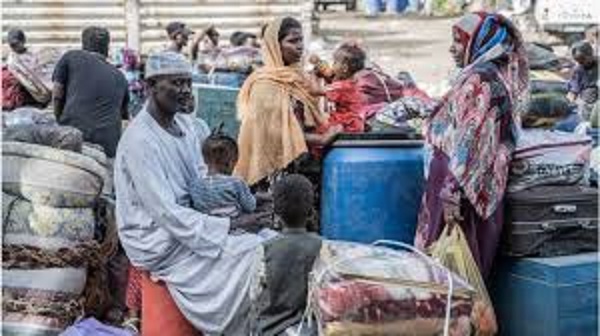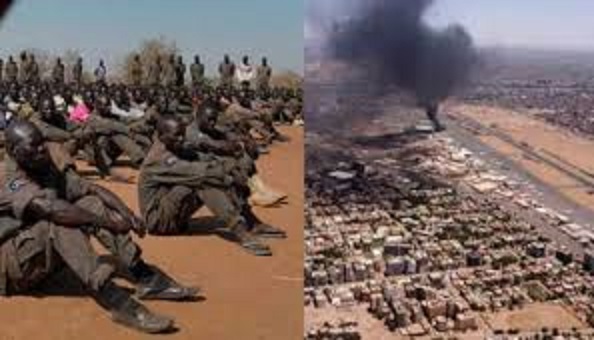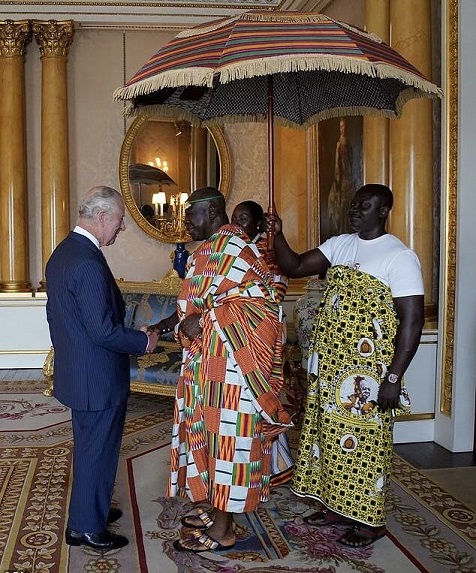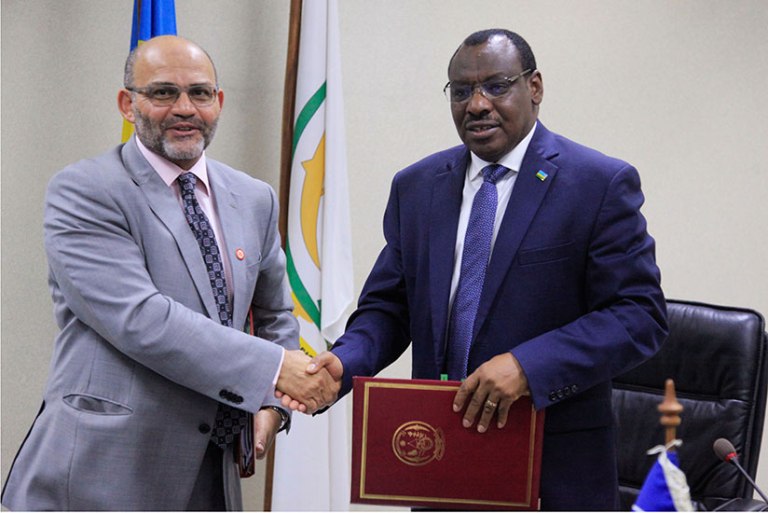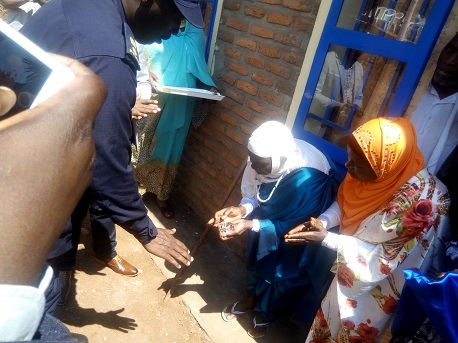By Mohamed Osman Adam
Five weeks into the most terrible fighting Sudanese towns have ever witnessed, the two warring parties in Sudan are now concluding a ceasefire agreement, internationally monitored, with possible extension into a cessation of hostilities and possible peace talks.
The detail-saturated agreement which will go into effect at 09:45 p.m., Khartoum time, on May 22, as brokered by the Americans and Saudis, said the two sides have agreed to halt all operations for one week, to allow save passage of humanitarian assistance and to allow trapped civilians move out of confrontation zones and obtain basic services including health care for the first time in five weeks.
The two parties in previous five occasions had announced truces but with little tangible impact on the ground, as the fighting continued in earnest, each and every time they announced the truce. The death toll continued and the 800 death toll reported up until now among the civilians seems to be only estimates. These figures do not include military or other people outside the urban areas.
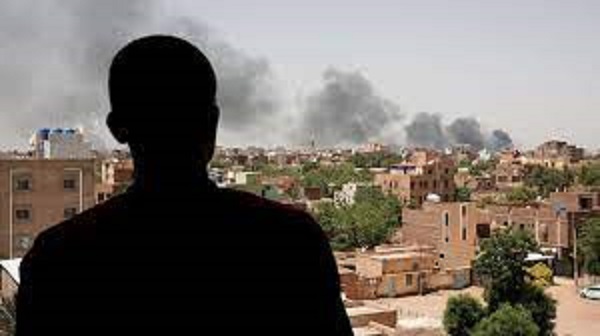
The fighting has taken a huge toll and rendered down town Khartoum a ghost town, with majority of the building, some dating back to the 17 and 18tgh century, destroyed or badly damaged. Nobody could up to now say how many people, civilians and troops, have been killed or maimed. The two sides, the Sudanese Armed Forces and the Rapid Support Forces have kept mum about their losses, especially the army.
But at one time in what appeared to be slip of a tongue, the leader of the Rapid Support Forces General Mohamed Hamdan Daglo, complained in an interview with Al Arabia TV channel that he was furious with General Abdul Fatah Al Burhan, the Commander of the Sudanese Armed Forces, "because in one attack they killed 4800 of our troops that were heading outside the Sudan." He was referring to troops he used to send to Saudi Arabia to take part in the Saudi led alliance against Iranian backed Hoathi Shiite groups.
Again the death toll among the civilians covers only those who were reported in the official records of the hospitals and health facilities. Quite a huge number of deaths are believed to go unaccounted for such as the death that occur in non-residential areas, market places, center of the town, and the wilderness where army has been air bombarding RSF convoys heading for Khartoum with reinforcement.
Hundreds of factories, workshops, thousands of malls, shops and work stations were destroyed or looted in Khartoum alone. Thousands of business are crushed to zero start, if ever. Dozens of hospitals have been rendered bunkers for the Rapid Support Forces. Some diabetic patients seeking wound dressing have to travel over 60 miles south of Khartoum to get medical attention they deserved.
Tens of thousands trapped in Saudi Arabia after performing the small Hajj or Omra, and they could not return home as the airport of Khartoum was seriously damaged. The Saudi royal government said it would host and feed them until the situation ameliorates in the Sudan and they are able to go back. Furthermore, over a million Sudanese are displaced mostly from Khartoum into other states or outside the country, mainly to Egypt, South Sudan, Eritrea, Ethiopia and Chad.
The situation was described by UN and international humanitarian agencies as within the brink of a human catastrophe. The Americans who have initially described the fighting as a domestic affair have now intervened vigorously to press for a ceasefire that would allow for humanitarian emergency aid. They brought the two parties to Jeddah Saudi Arabia for a meeting and since then kept them there, each time to renew the ceasefire.
In a joint statement, Saudi Arabia and the US announced that on May 20, 2023, in Jeddah, Saudi Arabia, the representatives of the Sudanese Armed Forces and the Rapid Support Forces signed an Agreement on a Short-Term Ceasefire and Humanitarian Arrangements that enters into force 48 hours after the signing and shall remain in effect for seven days, extendable upon the agreement of both parties.
But this time the Americans and the Saudis made sure the agreement is implemented with international monitors on the ground to make sure clauses are agreed upon are genuinely respected.
The main stipulations of the agreement have clearly stated that during the 7 day true, the two parties “guarantee the freedom of movement of civilians throughout the country and to protect civilians from violence, harassment, recruitment, or other abuse.”
They also are to refrain from a number of actions mostly dealing with basic human rights, including respect of human dignity, widely shuttered during the five past weeks in Khartoum and elsewhere in Western Sudan’s Darfur region.
A salient example of disrespect for human life took place in Genaina, West Darfur where in just about three days over 200 civilians were killed and hundreds were injured, hospitals blown up and medical facilities attacked and turned into ashes.
The Sudanese army and some relief and humanitarian including international organizations concurred that the authors of these horrors were forces loyal to the Rapid Support Forces.
The agreement comes into effect two days after it is signed to allow the leadership inform their troops on the ground about the new deal and its scope. It is a smart way to trip the warring parties, mostly the RSF whose troops are scattered without cohesive communication channels, from the excuse that they were not aware about the stipulations.
The agreement further details practices the two parties should make sure they do not commit such as attacks and offensive actions, including all types of attacks, inhumane, or degrading treatment, including sexual, gender-based, and discriminatory violence of all kinds and targeting civilian infrastructure or population centers, looting or seizure of properties, resources, or humanitarian supplies; using civilians as human shields; occupying hospitals and essential infrastructure facilities, including water, electricity, and fuel installations.
The joint US-Saudi statement on Sunday explained that under the Agreement, the parties consented to facilitate the delivery and distribution of humanitarian assistance, restore essential services, and withdraw forces from hospitals and essential public facilities.
It added that the parties also agreed to facilitate the safe passage of humanitarian actors and commodities, allowing goods to flow unimpeded from ports of entry to populations in need.
“Both parties have conveyed to the Saudi and U.S. facilitators their commitment NOT to seek military advantage during the 48-hour notification period after signing the agreement and prior to the start of the ceasefire. The ceasefire will go into effect at 09:45 p.m., Khartoum time, on May 22.” The statement underlined.
The facilitators have however noted that it was well known that the parties have previously announced ceasefires that have not been observed.
“Unlike previous ceasefires, the Agreement reached in Jeddah was signed by the parties and will be supported by a U.S.-Saudi and international-supported ceasefire monitoring mechanism.” It stressed, adding that this short-term ceasefire is in line with the step-by-step approach agreed by the parties.
“It is anticipated that subsequent talks will focus on additional steps necessary to improve security and humanitarian conditions for civilians such as vacating forces from urban centers, including civilian homes, accelerating removal of impediments to the free movement of civilians and humanitarian actors, and enabling public servants to resume their regular duties.” The joint statement said.
The facilitators have specified that “given the brutality of the conflict” their immediate focus has been on stopping the fighting to relieve the suffering of the Sudanese people.
The statement said the Jeddah talks have focused on a short-term ceasefire to facilitate humanitarian assistance and restoration of essential services. “They are not a political process and should not be perceived as one. We anticipate that subsequent talks in Jeddah will address steps needed to reach a permanent cessation of hostilities.”
The two facilitators have expressed their hope that they look forward to leadership by Sudanese civilian stakeholders, with the support of the regional and international community, on a political process to resume a democratic transition and form a civilian government.
The facilitators of the agreement have underlined that the Sudanese people have now “suffered for five terrible weeks” as a result of this devastating conflict and that “The Kingdom of Saudi Arabia and the United States stand by them and we demand the parties fully abide by their commitments under this Agreement for a short-term humanitarian ceasefire to provide them with urgently needed relief.” The joint statement underlined.
Meanwhile the Sudanese army issued a terse statement saying it would fully commit to the implementation of the agreement which only deals with military and technical matters, away from any political aspects, and that the army would “hope the rebel militias would do the same”

